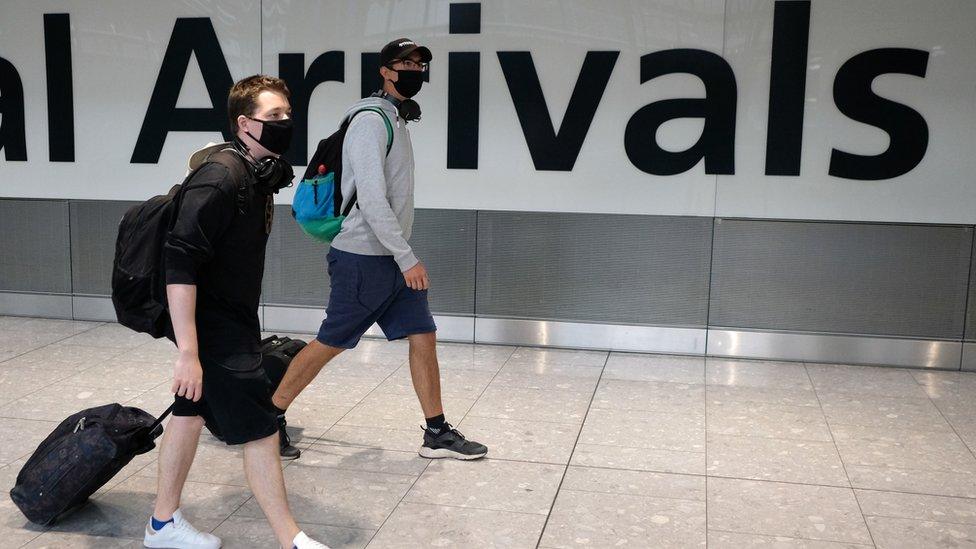Coronavirus: Thousands return to UK to beat France quarantine
- Published
- comments
British holidaymaker at Calais: "We cancelled our holiday to come home"
Thousands of holidaymakers have rushed back to the UK in a bid to avoid quarantine measures imposed on France, which came into force on Saturday.
The 14-day isolation requirement from 04:00 BST also applied to people arriving from the Netherlands, Monaco, Malta, Turks and Caicos, and Aruba.
Eurotunnel trains sold out on Friday and air travellers faced steep prices, but some ferries increased capacity.
France warned it would take "reciprocal measures".
The Netherlands warned against all but essential travel to the UK , externalonce the restrictions came into force on Saturday, but it said it will not introduce reciprocal measures.
The countries were targeted for quarantine restrictions because their infections rates exceeded 20 cases per 100,000 people over seven days, Transport Secretary Grant Shapps said.
He told BBC Breakfast on Friday that there were about 160,000 British holidaymakers in France, and said "the last thing we want to do is to have people returning and bringing the infection with them".
The deadline left many travellers in a frantic rush for plane, train or ferry tickets costing hundreds of pounds.
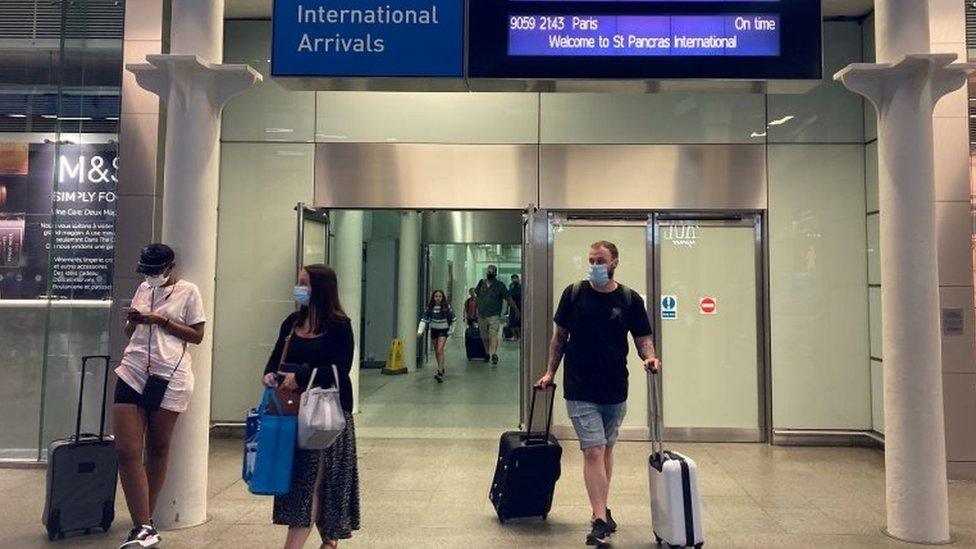
Eurostar passengers arriving at St Pancras on Friday evening, having beaten the quarantine deadline
Tom Duffell, who runs a small business, cut short his holiday to Nice - with his wife and two children - by four days and booked a last minute flight home.
"We were enjoying a nice cocktail last night and suddenly a news flash pops in and a scramble to book flights," he said on Friday.
"We've had to spend about £800 because we can't afford to take another two weeks off work."
He added that social distancing had "gone out of the window" in the scramble for transport, with "huge queues" at the airport.
Stephanie Thiagharajah, who returned to Kent from France, criticised the "manic" way the quarantine had been imposed and said the "risky" move had created "a huge amount of people coming at the same time".
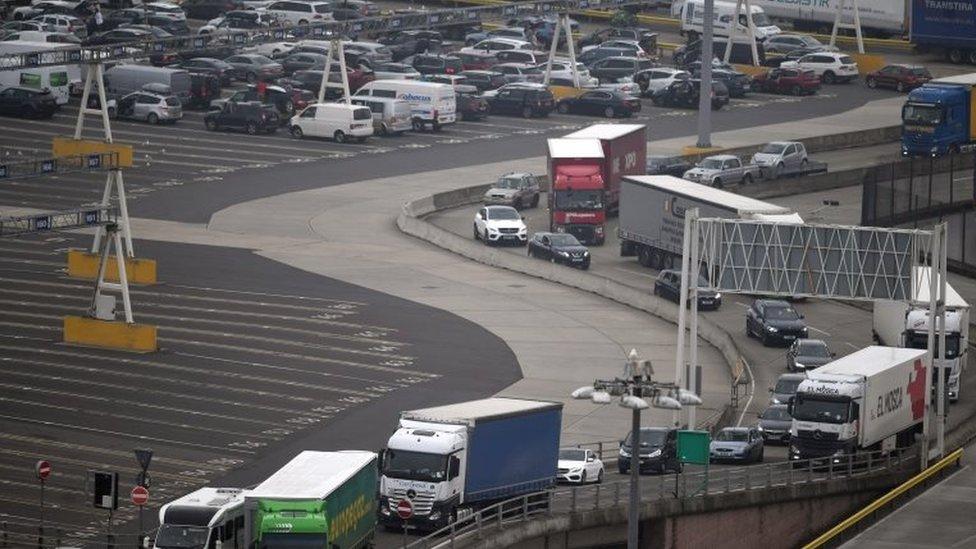
Some ferry companies added extra services amid the rush to return to the UK
Eurotunnel said 12,000 people tried to book tickets for its Channel Tunnel trains in the hour after the new rules were announced at about 22:00 BST on Thursday - compared with just hundreds normally.
It increased its capacity on Friday but trains sold out, and the company warned people not to travel to its terminal without a confirmed booking.
The shuttle service was running between 90 minutes and two hours late from Calais by Friday evening.
Eurotunnel spokesman John Keefe told the BBC traffic at the terminal in Calais was running smoothly all day.
BBC journalist made a video diary as her family had to cut short their holiday
"There were no huge queues. Many people seem to have decided to stay in France," he said.
Prices of some flights to the UK from Paris were more than £450, compared to £66 on Saturday. Many direct flights from the south of France were sold out.
The cheapest Eurostar tickets were £210, compared with £165 on Saturday. One couple, Stuart and Anna Buntine, spent nearly £1,000 to make it back to the Midlands via Eurostar from Burgundy, central France.
P&O Ferries told the BBC it had increased its capacity on its Spirit class ships.
And DFDS Ferries said it had added an extra four departures from Calais to help Britons return in time.

'Lose-lose situation' in Amsterdam
By Anna Holligan, BBC News foreign correspondent
There is no visible sense of panic inside Schiphol airport, Amsterdam, as the final call before quarantine approaches.
Passengers bobbed up the escalators towards the check-in desks no faster than usual, I saw no queues or people pleading to be sold an empty seat.
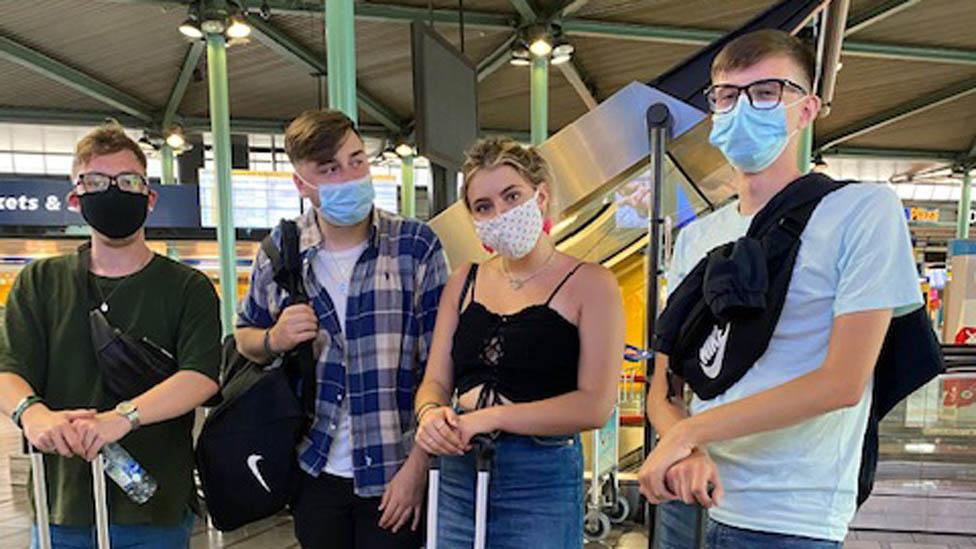
Conor Wells and his friends had saved up and treated themselves to a post-lockdown break
Conor Wells and his friends said they were conscious of the rising infection rates in Amsterdam before they set off but as they were only staying for a couple of nights, they thought they'd make it back before anything changed.
"We didn't think they'd give us a day's notice to get out. It came in so fast..." Martin Walter shakes his head as he scans the departures board.
Heading home 24 hours early has cost them more than an entire holiday. They couldn't afford to stay on and skip fourteen days of work upon return.
"At least we got a seat," Eva Povey rolls her eyes. "It's a lose-lose situation..."

'We're packing frantically'
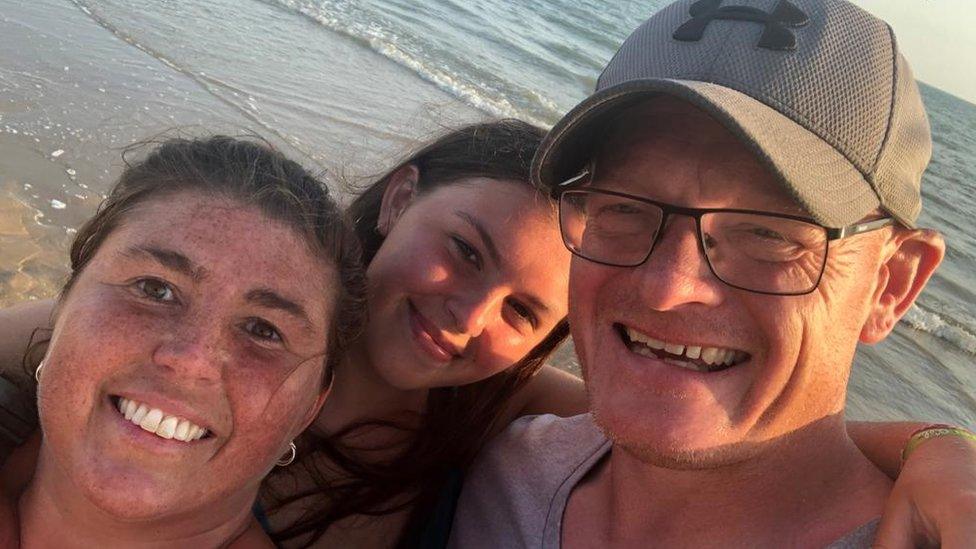
Scott and Tracy Cuthbert have been on holiday in France with their daughter Milly
Scott and Tracy Cuthbert, from Oxfordshire, said cutting their holiday in France short by six days was an "easy decision to make" because they need to work.
The couple and their daughter Milly, 16, began "frantically packing" after they heard news of the rule changes.
The family booked themselves onto a ferry for Friday afternoon, only to realise they wouldn't make it to the port in time - so booked another ferry, due to leave Calais at 20:30 BST.
"We're driving up now and the sat nav says we'll have about an hour's leeway," Scott said from the car.

On Friday, France reported 2,846 new coronavirus cases in 24 hours - the highest number since lockdown restrictions were eased.
The seven-day average increased to 2,041, marking the first time it has surpassed 2,000 since 20 April.
Clement Beaune, France's secretary of state for European affairs, tweeted that the UK's decision was a matter of "regret" for the French, external, but that he was hoping for a "return to normal as soon as possible".
The travel industry, already damaged by the pandemic, also criticised the move.
Gloria Guevara, president of the World Travel and Tourism Council, said the UK was lagging behind other countries that had "shunned quarantines" in favour of "comprehensive" testing programmes for everyone departing and arriving back into their respective countries.
The UK's ambassador to France, Lord Llewellyn, acknowledged that the new quarantine rule would be "unwelcome news" for Britons in the country, external, but stressed that people could continue with their holidays as long as they follow safety precautions and self-isolate on their return.
Shadow home secretary Nick Thomas-Symonds said while the Labour Party supports "evidence based measures" at the border, it was "vital" that No 10 had a "joined-up strategy" and "urgently" puts in place a specific deal to support the heavily impacted travel sector.
He added: "That the government has still not put in place an effective track, trace and isolate system has made matters far worse and made it more likely that we are reliant on the blunt tool of 14-day quarantine."
How do I quarantine after returning from abroad?
According to the data company Statista, people from the UK paid 10.35 million visits to France, external last year, putting it second behind Spain - with 18.12 million - in terms of popularity.
The Foreign Office is now warning against all but essential travel to France. The quarantine measure was imposed for Spain on 25 July.
A list of more than 50 so-called travel corridors - allowing movement between the UK and the other countries without the need to self-isolate on return - was published at the start of last month and later expanded.
But the ending of some of the exemptions on the list follows a "significant change" in the risk of contracting Covid-19, the Department for Transport said.
It added that there had been a 66% increase in newly reported cases per 100,000 people in France since last Friday.
For the Netherlands, it was up 52%. And the increase for Malta was 105%, while it was 273% for Turks and Caicos and 1,106% for Aruba.
'Can't be complacent'
Ahead of a government meeting on the new measures, UK Prime Minister Boris Johnson promised to be "absolutely ruthless" in deciding on rules for holidaymakers from abroad.
"We can't be remotely complacent about our own situation," he added.
According to the Home Office, a total of nine fines have been introduced at the border since quarantine restrictions were introduced on 8 June.
Under the rules, people who do not self-isolate can be fined up to £1,000 in England, Wales and Northern Ireland and £480 in Scotland. There are fines up to £5,000 for persistent offenders.

SOCIAL DISTANCING: What are the rules now?
TESTING: Who can get a test and how?
GLOBAL SPREAD: Tracking the pandemic

Meanwhile, the government has announced that maximum fines for people in England who repeatedly refuse to wear a face covering could double to £3,200, while organisers of illegal raves could face a £10,000 penalty.
But from Sunday, indoor theatre, music and performance venues will be able to reopen with socially distanced audiences.
Casinos, bowling alleys, skating rinks and soft play centres will also be allowed to resume, as will "close-contact" beauty services such as facials, eyebrow threading and eyelash treatments.

A LEVEL RESULTS: I didn't get the results I wanted... What happens next?
'MY MENTAL HEALTH CRASHED': The impact of being turned away from therapy in lockdown


Have you been affected by the recent quarantine changes? Share your experiences by emailing haveyoursay@bbc.co.uk, external.
Please include a contact number if you are willing to speak to a BBC journalist.
WhatsApp: +44 7756 165803
Tweet: @BBC_HaveYourSay, external
Send pictures/video to yourpics@bbc.co.uk, external
Please read our terms & conditions and privacy policy
- Published15 August 2020
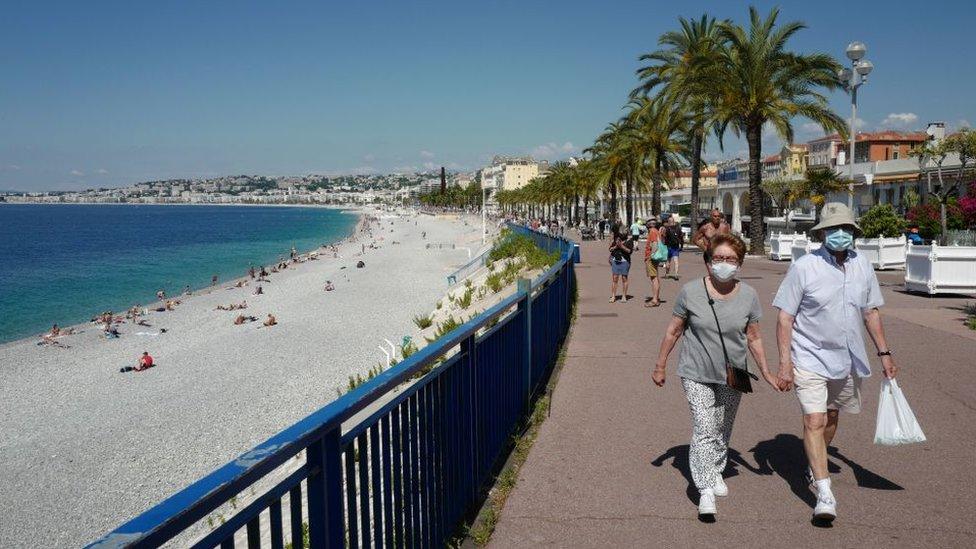
- Published29 November 2021
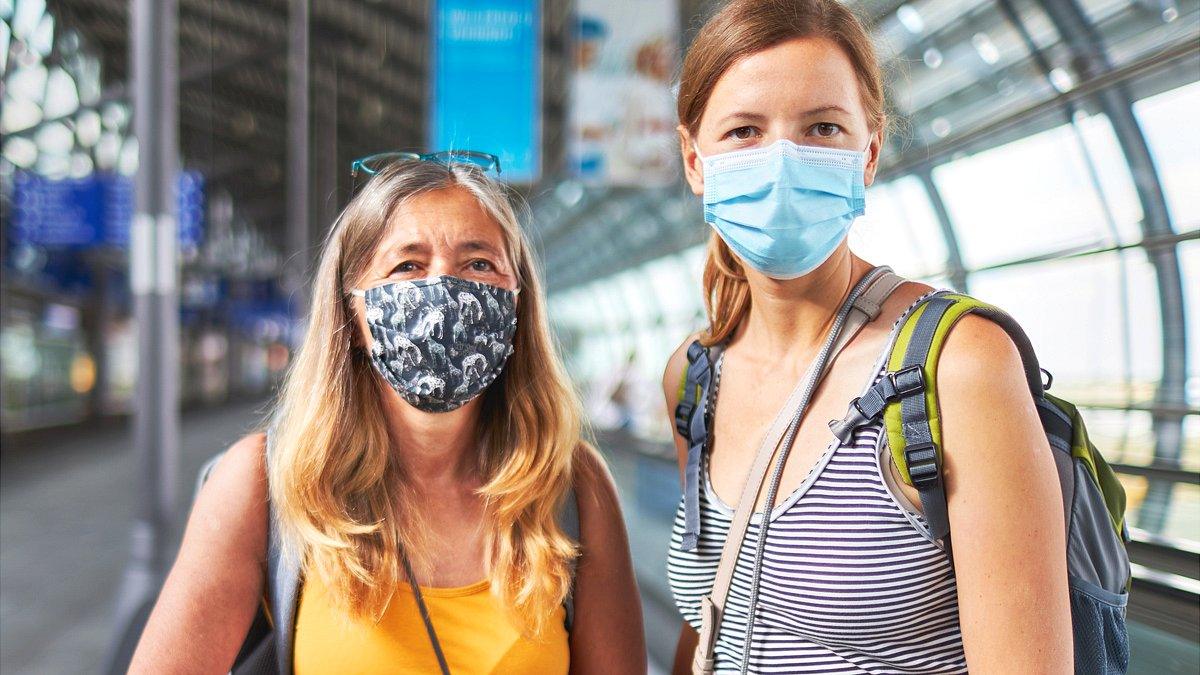
- Published14 August 2020

- Published11 February 2022

- Published11 August 2020
